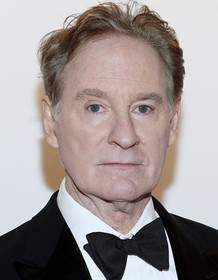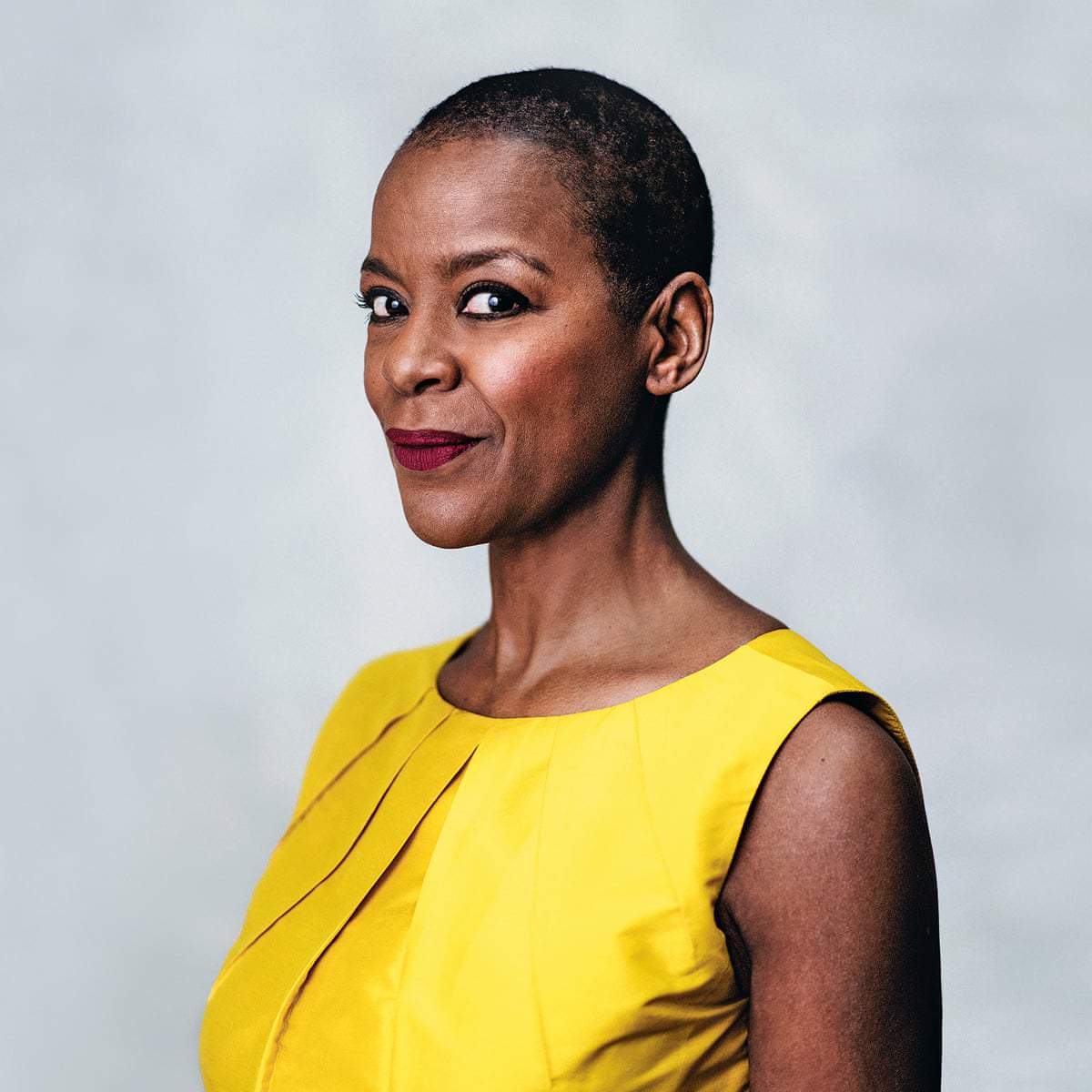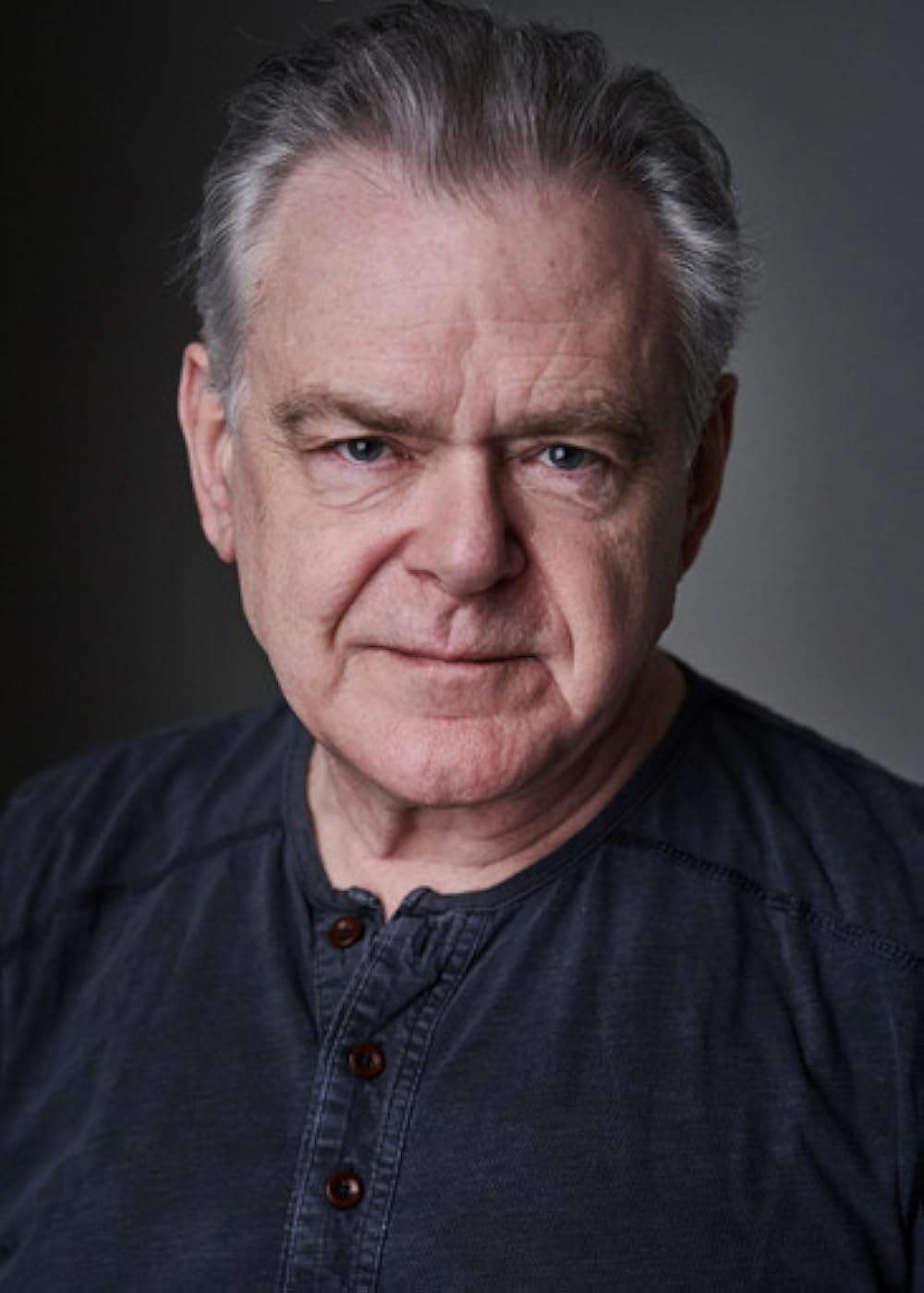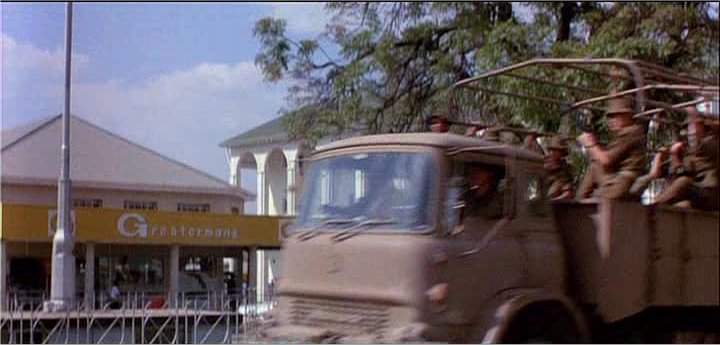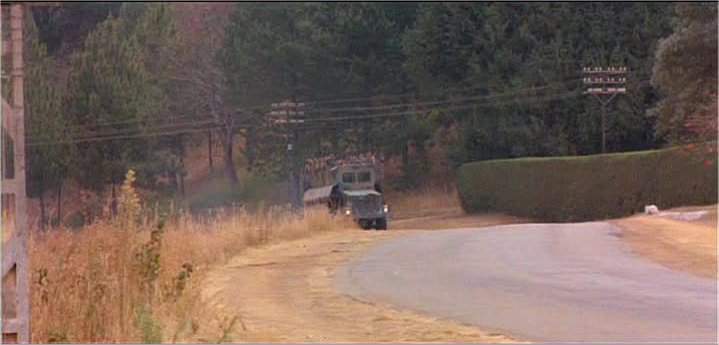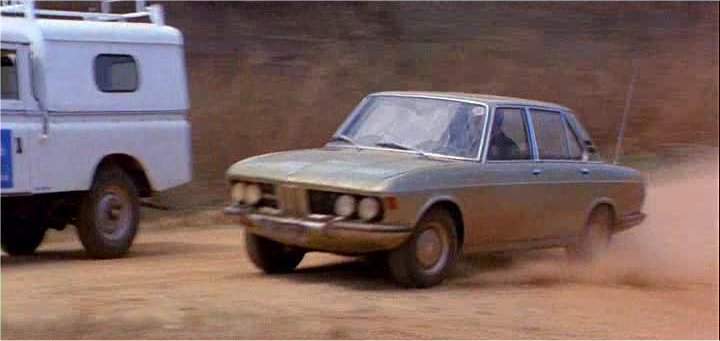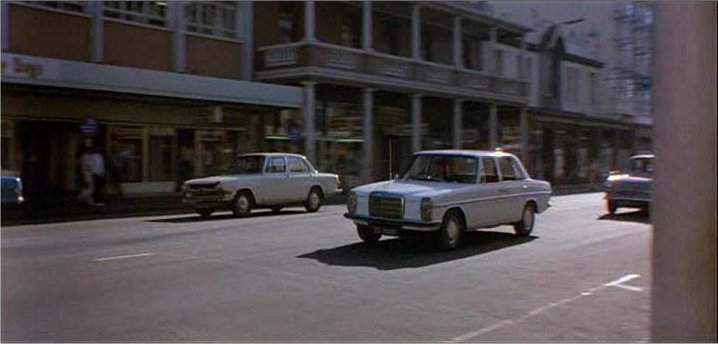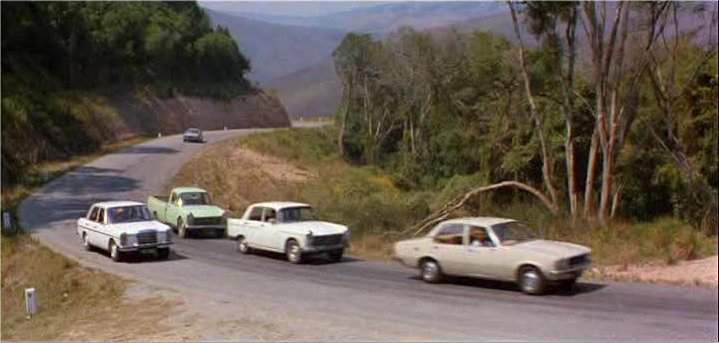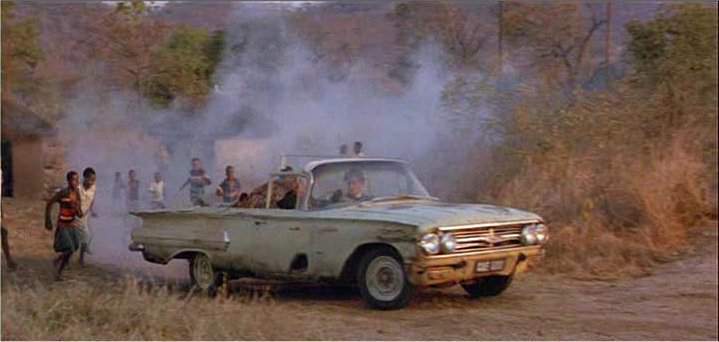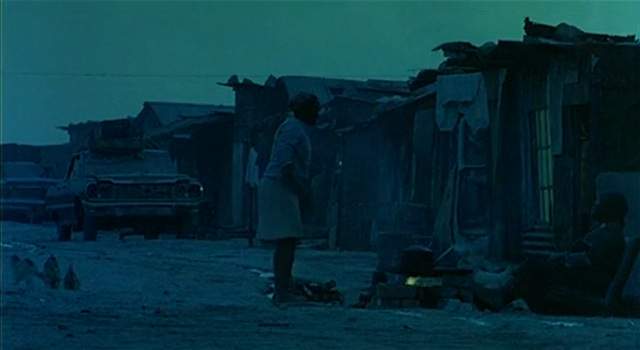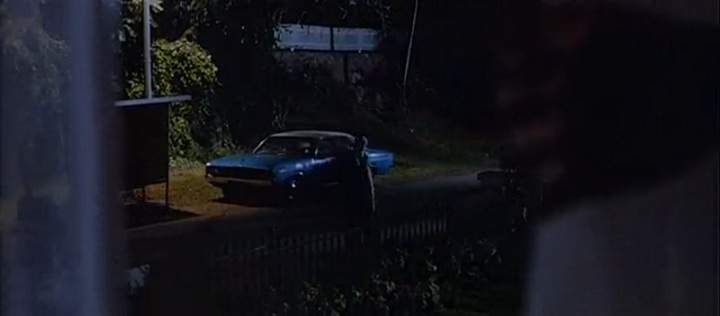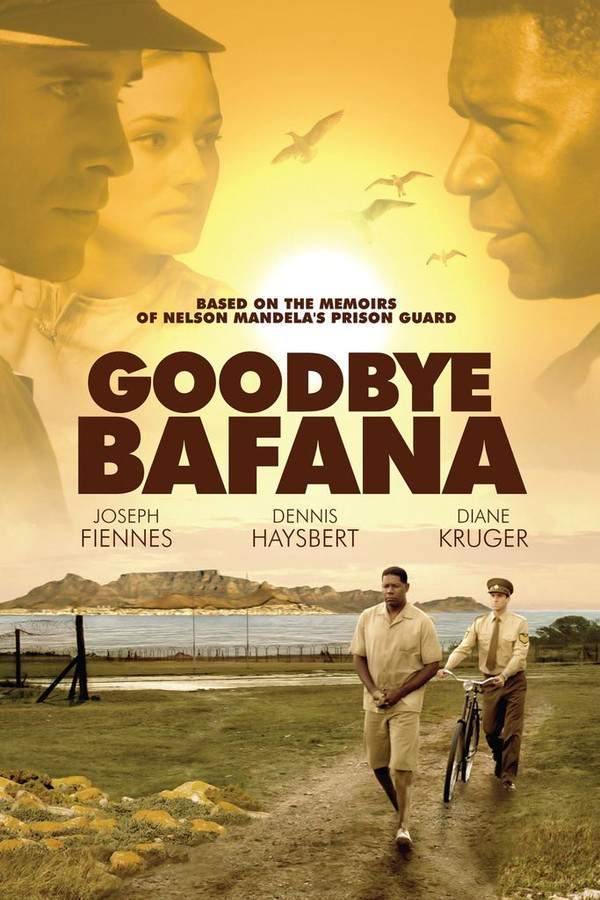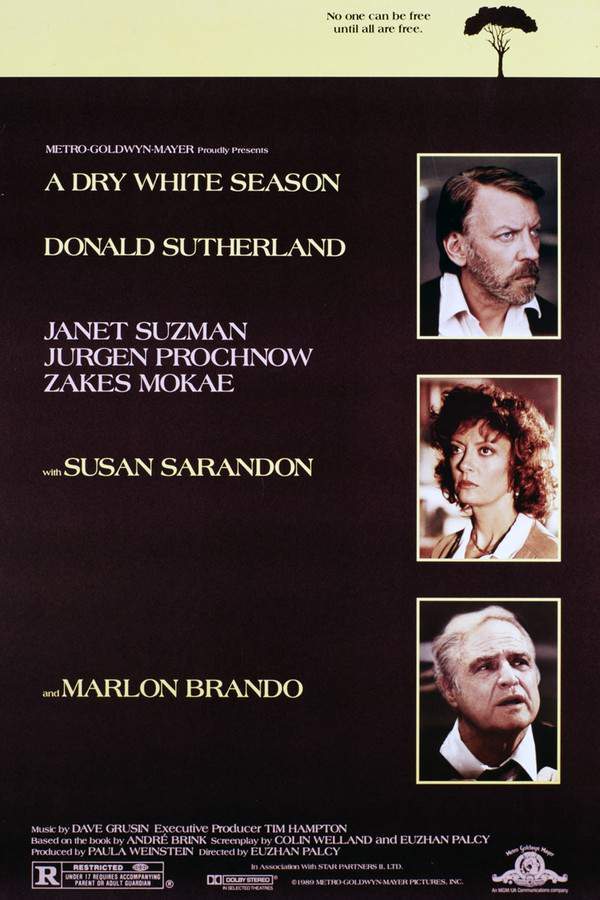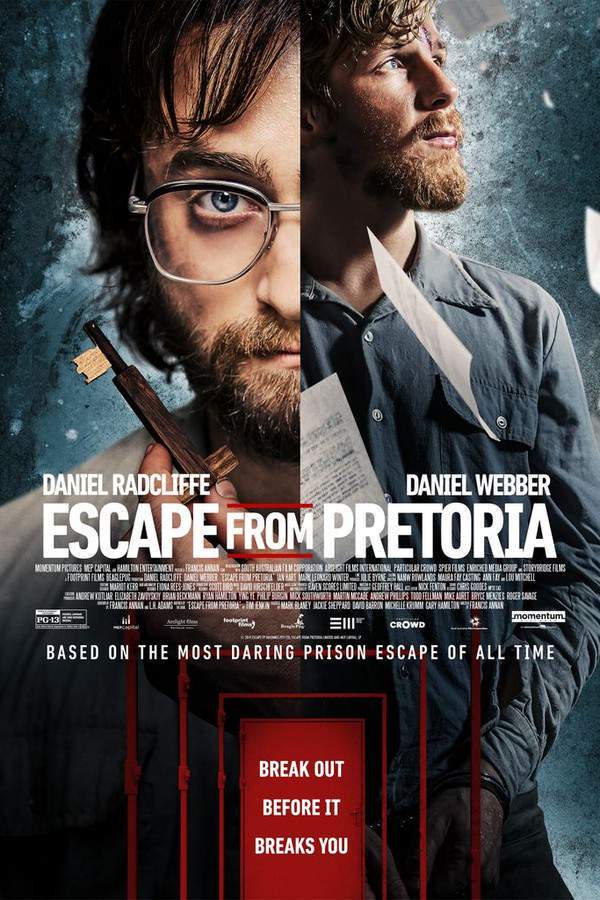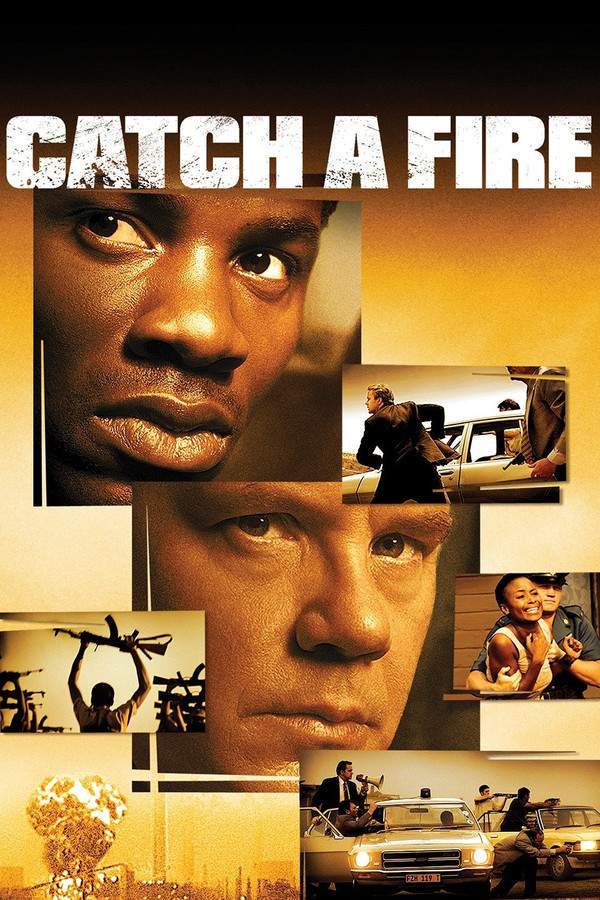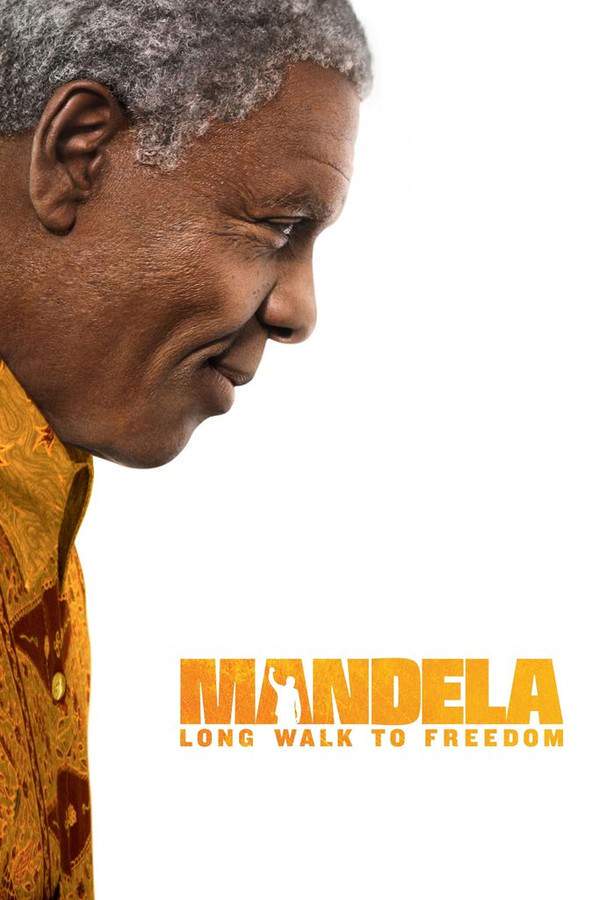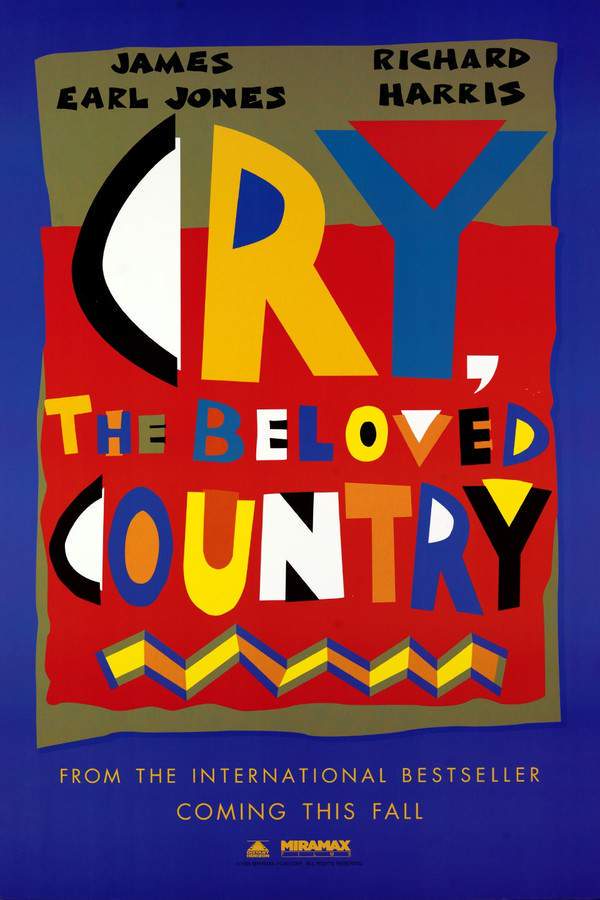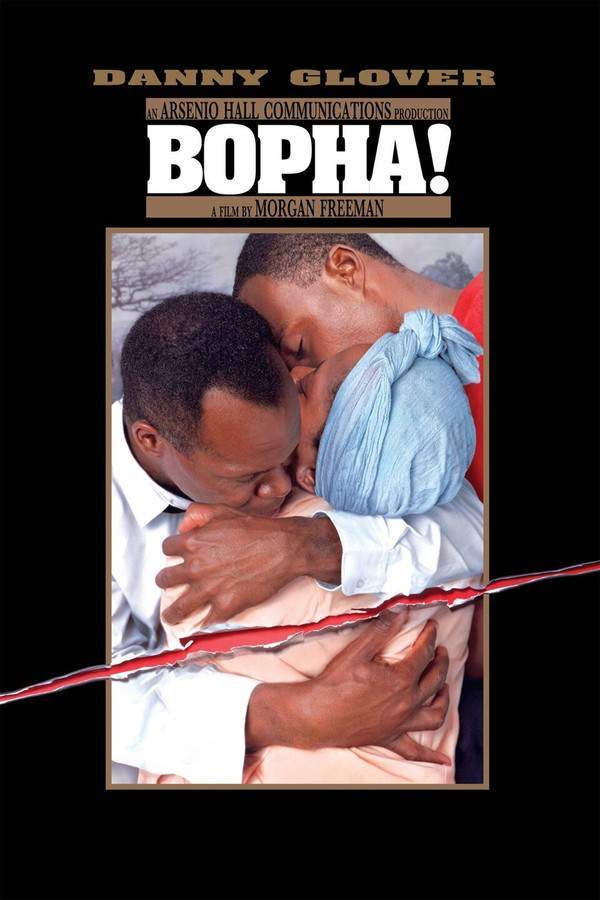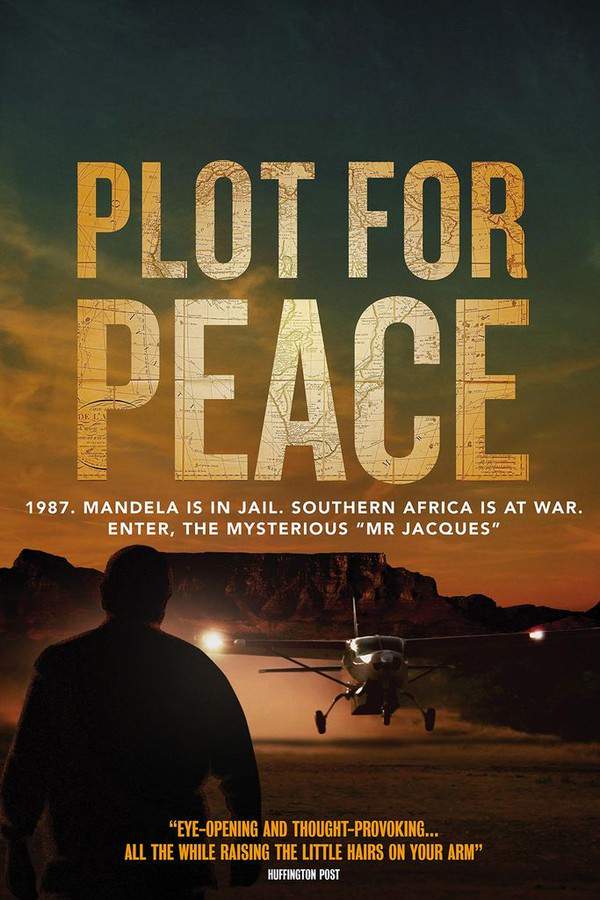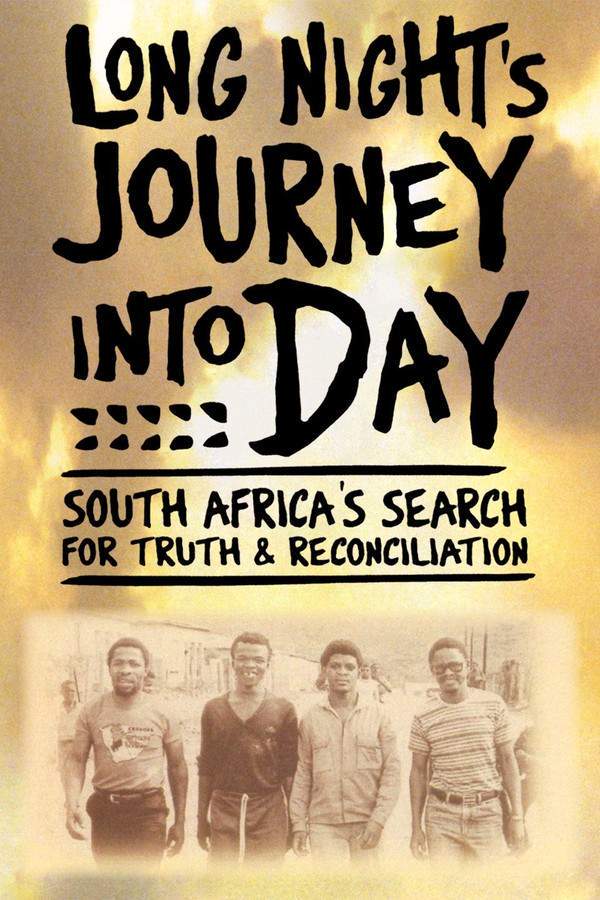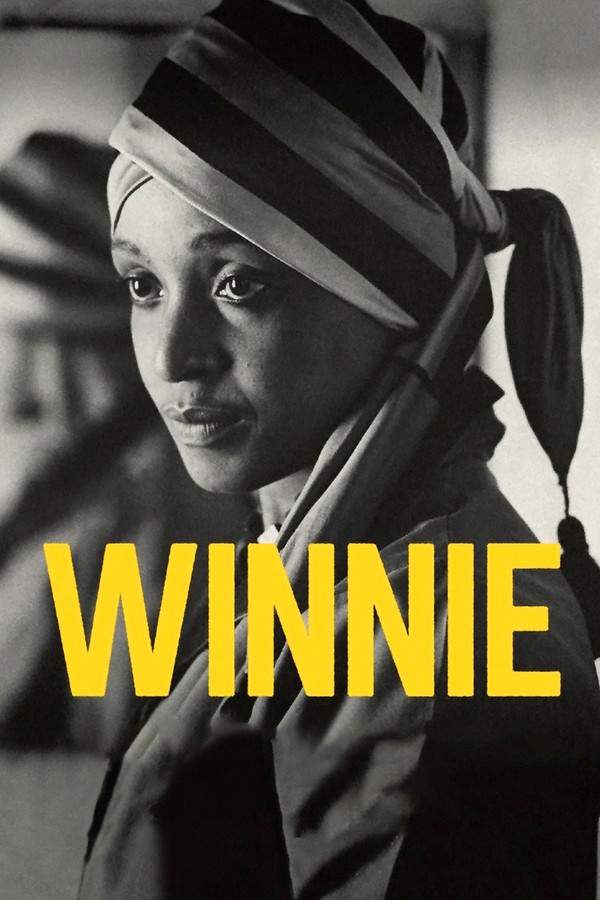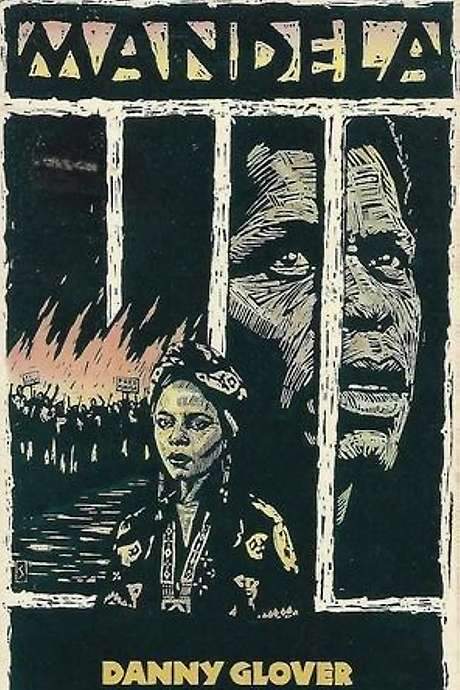Cry Freedom 1987
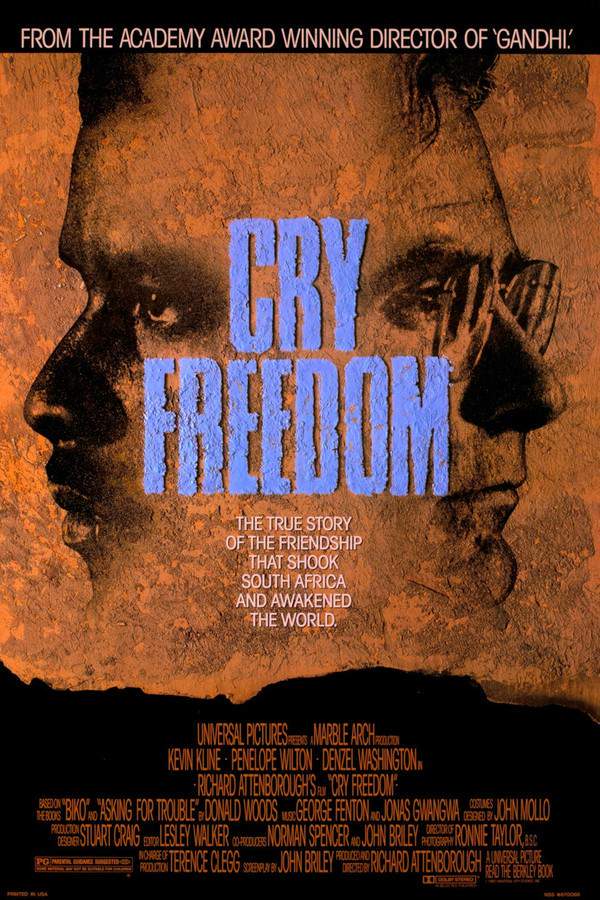
During the turbulent era of apartheid in South Africa, journalist Donald Woods develops a close relationship with the charismatic activist Steve Biko. Following Biko's death in police custody, Woods becomes increasingly outspoken and is placed under house arrest. Faced with escalating persecution and fearing for his family's safety, he makes the difficult decision to flee the country, determined to expose the truth about the systemic injustice and fight for freedom and equality.
Does Cry Freedom have end credit scenes?
No!
Cry Freedom does not have end credit scenes. You can leave when the credits roll.
Meet the Full Cast and Actors of Cry Freedom
Explore the complete cast of Cry Freedom, including both lead and supporting actors. Learn who plays each character, discover their past roles and achievements, and find out what makes this ensemble cast stand out in the world of film and television.
External Links and Streaming Options
Discover where to watch Cry Freedom online, including streaming platforms, rental options, and official sources. Compare reviews, ratings, and in-depth movie information across sites like IMDb, TMDb, Wikipedia or Rotten Tomatoes.
Ratings and Reviews for Cry Freedom
See how Cry Freedom is rated across major platforms like IMDb, Metacritic, and TMDb. Compare audience scores and critic reviews to understand where Cry Freedom stands among top-rated movies in its genre.

59
Metascore
6.8
User Score


73%
TOMATOMETER

87%
User Score

70
%
User Score
Take the Ultimate Cry Freedom Movie Quiz
Challenge your knowledge of Cry Freedom with this fun and interactive movie quiz. Test yourself on key plot points, iconic characters, hidden details, and memorable moments to see how well you really know the film.
Cry Freedom Quiz: Test your knowledge on the impactful film 'Cry Freedom' and its poignant storytelling of anti-apartheid struggles.
Who is the main character that becomes intrigued by Steve Biko's activism?
Donald Woods
Jimmy Kruger
Bruce Haigh
Bantu Stephen Biko
Show hint
Awards & Nominations for Cry Freedom
Discover all the awards and nominations received by Cry Freedom, from Oscars to film festival honors. Learn how Cry Freedom and its cast and crew have been recognized by critics and the industry alike.
The 60th Academy Awards 1988

Music (Original Score)
Music (Original Song)
41st British Academy Film Awards 1988


Best Actor in a Supporting Role
Best Cinematography
Best Editing
Best Original Music
Best Sound
45th Golden Globe Awards 1988
Best Motion Picture – Drama


Best Original Score
Full Plot Summary and Ending Explained for Cry Freedom
Read the complete plot summary of Cry Freedom, including all major events, twists, and the full ending explained in detail. Explore key characters, themes, hidden meanings, and everything you need to understand the story from beginning to end.
Following an eye-opening exposé revealing the drastic destruction of a notorious slum in East London, South Africa, liberal journalist Donald Woods becomes fascinated by the challenges faced by anti-apartheid activist Steve Biko. Biko stands as a pivotal figure in the Black Consciousness Movement, and despite their initial ideological differences—Woods strongly opposing Biko’s banning and questioning his political beliefs—he cannot help but be captivated by Biko’s steadfast dedication to nonviolent resistance. Through insightful conversations, Biko invites Woods on an enlightening tour of impoverished black townships, where the harsh realities of government oppression and apartheid’s suffocating presence starkly unfold before them. Witnessing the dire conditions firsthand, Woods starts to understand and share Biko’s vision of a South Africa where every individual, irrespective of race, can enjoy equal rights and opportunities. As their relationship deepens, the two men forge a powerful bond grounded in their united pursuit of justice.
During a pivotal moment, Biko takes his message beyond his limited ‘banning area’ to inspire the masses with a passionate address that resonates with his audience. However, his call for change quickly meets with opposition as he is apprehended by security forces, informed on by an untrustworthy source. After enduring a relentless interrogation, Biko is summoned to court to explain his stance and articulate the burning passion that fuels his movement. Undaunted by an oppressive regime, he eloquently champions the cause of nonviolent resistance, his words infused with unwavering conviction.
In the shadow of this ordeal, Biko’s church comes under siege from security officers seeking to intimidate him. In a courageous move, Woods steps in, securing a meeting with Jimmy Kruger, the South African Minister of Justice, intent on halting the tide of violence and safeguarding his friend. Initially met with resistance, Woods’ grit leads to a fraught confrontation that places him under the chilling threat of harassment, indicating that orders have likely come from Kruger himself.
As Bantu Stephen Biko navigates an increasingly perilous path, he finds himself behind bars in brutal conditions and suffers severe injuries due to a beating, inflicting irreversible damage to his brain. Despite medical advice suggesting he should receive specialized treatment, the authorities refuse due to fears of escape. Instead, they transport him to a police hospital in Pretoria, a grueling 700-mile journey from Cape Town that further deteriorates his fragile condition and results in a tragic outcome.
Following Biko’s heartbreaking death, Woods feels compelled to expose the police’s involvement in this sinister act. However, his efforts face significant obstacles as he is barred from boarding a flight, learning he is banned from leaving South Africa. Consequently, Woods and his family endure relentless harassment from security forces, including gunfire into their home, vandalism, and tormenting packages sent to them, including shirts bearing Biko’s image coated in itching powder.
Unyielding, Woods resolves to find asylum in Britain, motivated by a relentless desire to unveil the heinous and racist nature of the South African government. His journey is fraught with danger as he disguises himself as a priest to escape the grips of the authorities. Ultimately, he manages to reach the Kingdom of Lesotho, where his wife Wendy and their children soon follow.
With the assistance of Australian journalist Bruce Haigh, the British High Commission in Maseru, and the Government of Lesotho, they secure passage with United Nations passports, aided by a lone official from Lesotho. Their daring escape traverses South African territory through Botswana, finally landing them in London, where they are granted political asylum.
The film culminates in a poignant reflection on the harrowing price paid by anti-apartheid activists like Biko, whose lives were tragically cut short while in government custody under dubious circumstances. As the poignant strains of Nkosi Sikelel’ iAfrika echo in the background, viewers are left to contemplate the devastating repercussions of oppression and the indomitable human spirit that fights back defiantly against adversity.
Uncover the Details: Timeline, Characters, Themes, and Beyond!

Coming soon on iOS and Android
The Plot Explained Mobile App
From blockbusters to hidden gems — dive into movie stories anytime, anywhere. Save your favorites, discover plots faster, and never miss a twist again.
Sign up to be the first to know when we launch. Your email stays private — always.
Watch Trailers, Clips & Behind-the-Scenes for Cry Freedom
Watch official trailers, exclusive clips, cast interviews, and behind-the-scenes footage from Cry Freedom. Dive deeper into the making of the film, its standout moments, and key production insights.
Cars Featured in Cry Freedom
Explore all cars featured in Cry Freedom, including their makes, models, scenes they appear in, and their significance to the plot. A must-read for car enthusiasts and movie buffs alike.
Cry Freedom Themes and Keywords
Discover the central themes, ideas, and keywords that define the movie’s story, tone, and message. Analyze the film’s deeper meanings, genre influences, and recurring concepts.
Cry Freedom Other Names and Titles
Explore the various alternative titles, translations, and other names used for Cry Freedom across different regions and languages. Understand how the film is marketed and recognized worldwide.
Similar Movies To Cry Freedom You Should Know About
Browse a curated list of movies similar in genre, tone, characters, or story structure. Discover new titles like the one you're watching, perfect for fans of related plots, vibes, or cinematic styles.
Quick Links: Summary, Cast, Ratings, More

What's After the Movie?
Not sure whether to stay after the credits? Find out!
Explore Our Movie Platform
New Movie Releases (2026)
Famous Movie Actors
Top Film Production Studios
Movie Plot Summaries & Endings
Major Movie Awards & Winners
Best Concert Films & Music Documentaries
Movie Collections and Curated Lists
© 2026 What's After the Movie. All rights reserved.


